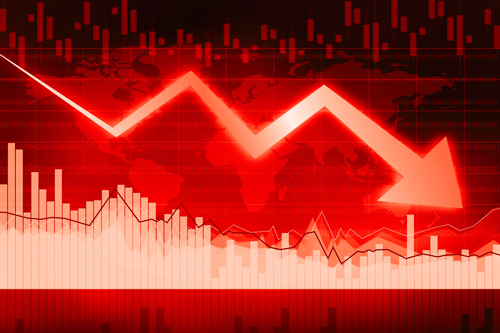The cause of the next big fall
During the financial meltdown in 2008, the collapse had nothing to do with companies themselves at first… it was the value of their derivatives.
A derivative is, fundamentally, something made of nothing. The simplest example is an options contract of a stock. The stock is the underlying asset, and by using the value of that asset, and then adding some fancy math to that valuation using time and volatility, you get the value of various options.
Years ago I was getting a tour of the floor of the Chicago Board Options Exchange. The floor manager walking me around was telling me how most of the traders on the floor these days (and this was back in the late 1990s) were physics or math majors, many with post-graduate degrees in these fields.
And since then, the derivatives business has gotten no less esoteric. About five years ago, a study by a British group of scientists released a study showing that more science grads were going to work in the financial markets than in the scientific community. The money was way better.
One problem with this is the fact that scientists don’t really care how the markets work; they are simply developing algorithms to anticipate certain inputs. There is no context to the trading. The markets’ institutional memory and intuitive character among seasoned traders has been supplanted by results-oriented, “scientific” trading.
Another problem stemming from this is that the financial institutions are once again building more complex derivatives to offload risk. But the kicker is, they’re offloading it to one another, just like they did during the 2008 meltdown.
So what does this mean from your perspective?
Let’s use Germany’s top bank, Deutsche Bank, as a prime example. This is one of world’s major banks. And since May 2007 its stock has dropped 90 percent. It has been indicted in almost every major market manipulation scandal that has occurred in both the U.S. and Europe.
That’s bad enough. An even bigger concern is that Deutsche Bank has a market cap of $19 billion, but it has derivatives exposure that is a least $46 trillion. That’s right, trillion.
If this bank is an example of what’s going on in the world’s financial institutions, we’re hardly out of the woods from the last financial crisis. The banks have simply doubled down.
Did you know that according to Forbes, the top four banks in the world are Chinese banks? The first U.S. bank on the list in number five (JPMorgan Chase). The Chinese banks have been fueling manufacturing and real estate development in China. You can imagine how well they’re doing right now.
If these banks topple you can be sure all major banks are in trouble since they’re all holding each others’ risk in various derivatives.
Those “too big to fail” banks are not even the biggest players in the banking sector anymore.
I bring this up just to emphasize that the markets remain in turmoil and the banks are still playing shell games. They’re not lending money to get businesses running; they’re still spinning off derivatives to manufacture profits out of thin air, as the economy sits in neutral.
The financial sector is primed for another dive, and this one will be worse than the last because seemingly all power over the economy has been ceded to the central bankers and there’s nothing they can do to stop the meltdown.
Taxpayers will be the ones who pay for the next phase of the Great Recession unless we all lessen our exposure and steer away from the big banks, whether as stocks, or simply as a place to hold your assets.
Don’t take out any loans because once this whole thing crashes they can call them in, if necessary, and the youngest loans likely will be called first.
Build up your investments in precious metals. My feeling is that real estate is a crapshoot at this point because the market is rising again for no reason, and if the Chinese market goes, along with their demand for foreign real estate, the global real estate market is going to be thrown into turmoil.

No comments:
Post a Comment
Thanks for commenting. Your comments are needed for helping to improve the discussion.